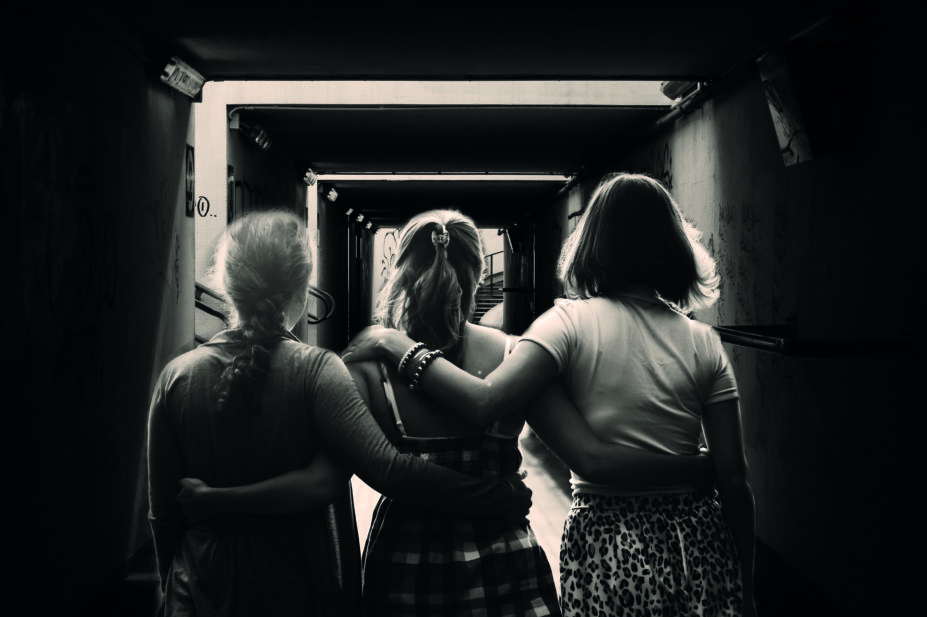
Shutterstock / MAG
You may have seen girls in the pharmacy who make you breathe a sigh of relief when they’ve left. They may be self-assured and giggly, and one of them has tried all the testers of the premium lipsticks, and the store detective follows her carefully to deter shoplifting. She may be a client for supervised administration or needle exchange. The other customers are showing disapproval. They wonder where the parents are, and feel confident that their daughters, nieces or sisters would never behave like that. In short, you do not want to prolong their visit.
But after seeing the BBC’s ‘Three Girls’ — a real-life drama about the on-street grooming of girls and young women in Rochdale — we all need to think again. While most of these girls in the pharmacy will simply be testing the limits of their independence and having fun with their friends, there is a group of very young women who are being abused by groups of men — and it’s not just in the industrial towns and cities of the North.
Since the inception of the pharmacy emergency contraception service, community pharmacists have been tackling difficult conversations with lots of young women. Research shows that women using the pharmacy service were very satisfied with the care that they received, and that the staff were non-judgemental. Community pharmacy deserves high praise for playing a vital part in making a difference to women’s lives.
Community pharmacists are well placed to help with ongoing local community surveillance. They hear conversations that other health providers do not. The social capital of community pharmacy as a meeting place has been well documented. The reach of pharmacy into communities that are starved of many other health services has been neatly conceptualised by Todd et al.’s ‘positive pharmacy care law’[1]. But I would argue that pharmacy could do more to engage with the concerns of young people. Healthy Living Pharmacies mean health for everyone.
I have no doubt that every pharmacist has experienced difficult moments regarding safeguarding. ‘Three Girls’ highlighted the difference between consensual sex among teenagers who have a relationship, and coerced sex between young women and much older men. I anticipate that taking on a surveillance role will not make those conversations easier — we may need to think about top-up training with local sexual health professionals, safeguarding professionals and the police to make our interventions truly effective.
So when those girls come and wreak havoc, find a member of staff who will say a genuine ‘hello’, who will tell them which lipstick suits them best and where to find the sanitary towels. They do not need to be patronised, but they do need to know that they can be respected and can be shown how to respect themselves and others. Consider them your extended family of sisters and nieces who all deserve a fair chance to fulfil their potential. Get to know their names. Give them a safe place to start a conversation — it may be their only safe place to start a conversation. You may not get much in immediate return, but see it as an investment for the future.
Reference
[1] Todd A, Copeland A, Husband A et al. The positive pharmacy care law: an area-level analysis of the relationship between community pharmacy distribution, urbanity and social deprivation in England. BMJ Open 2014 2014;4:e005764. doi: 10.1136/bmjopen-2014-005764
You may also be interested in
The importance of diverse clinical imagery within health education

Government should consider ways to prevent ‘inappropriate overseas prescribing’ of hormone drugs, review recommends
